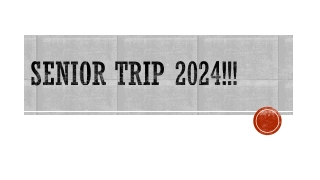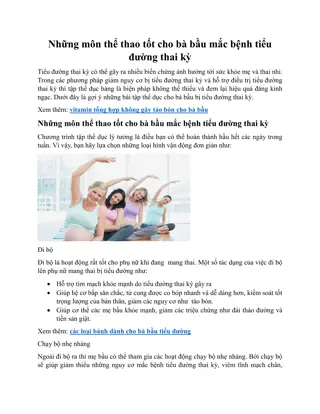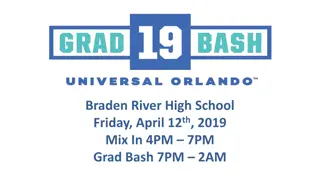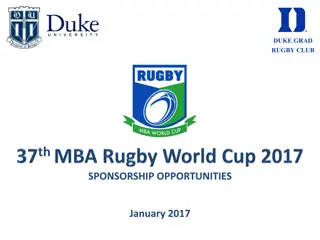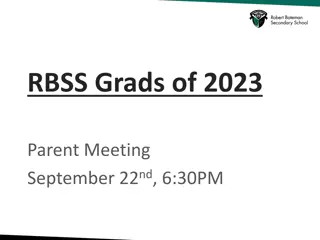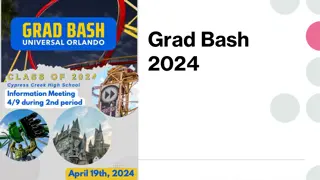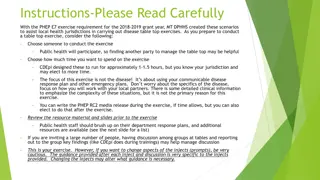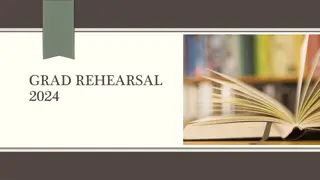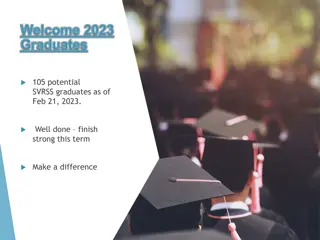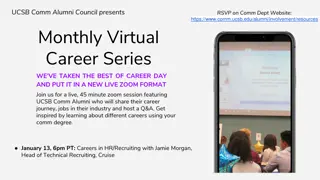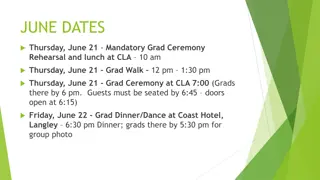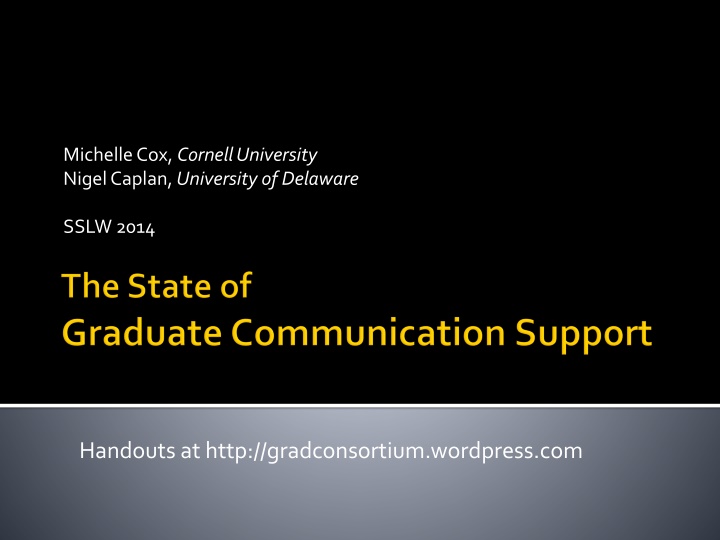
Grad Student Communication Support Trends
Explore trends in graduate student communication support, such as the rise in international student numbers, challenges in research support, and the diversity of services offered. Discover insights from a survey of Consortium on Graduate Communication members regarding support services, professional affiliations, and institutional positions.
Download Presentation

Please find below an Image/Link to download the presentation.
The content on the website is provided AS IS for your information and personal use only. It may not be sold, licensed, or shared on other websites without obtaining consent from the author. If you encounter any issues during the download, it is possible that the publisher has removed the file from their server.
You are allowed to download the files provided on this website for personal or commercial use, subject to the condition that they are used lawfully. All files are the property of their respective owners.
The content on the website is provided AS IS for your information and personal use only. It may not be sold, licensed, or shared on other websites without obtaining consent from the author.
E N D
Presentation Transcript
Michelle Cox, Cornell University Nigel Caplan, University of Delaware SSLW 2014 Handouts at http://gradconsortium.wordpress.com
Increased awareness of the needs of (L2) graduate students Increased # of international grad students (CGS, 2014): In 2012/13, 20% of grad students in the US were int l From 2012 to 2013, first-time int l grad students rose by 11.5%, while domestic numbers fell by 2.1% (p. 76) Increased # of masters students (Open Doors Data, 2014): In 2012/13, 53.3% of all int l grad students in the US were at the master s level, representing an 8% increase since the previous year.
Despite these increases Lack of research into systematic graduate communication support Diffusion of knowledge
Survey for new members of newly established Consortium on Graduate Communication (CGC). Questions on: Support services offered Professional affiliation Institutional position Need for CGC
Sample frame: 213 responses (April-July 2014) (as of last week, 255 responses) 210 complete, unique responses from 161 universities analyzed 28 countries (68% of respondents from U.S.)
Graduate communication support services L2 and/or L1 students? Fragmentation of services and knowledge Exemplary programs
Support offered by institutions Range of offerings: 0 to 12 no support 5% writing support only 32% both writing and oral com support 63% Average around 5
90% 80% Percentage of institutions who responded 70% 60% 50% 40% 30% 20% 10% 0%
60% 50% Percentage of institutions who responded 40% 30% credited non-credit 20% 10% 0% Writing Course Oral comm. course Pre-matriculation courses
They are only for ESL/international students, 12% They are open to all, but targeted mainly at ESL students, 10% Some are open to all; others are only for ESL/international students, 35% They are designed for NES, but open to ESL students, 6% They are designed for all and available to all, 37%
Writing Classes, Oral Communication classes: usually L2 only, but not all Writing Centers, Writing Groups, Boot Camps: usually for all, but some WCs just for L2 students Pre-Matriculation programs (probably under- reported) for L2 grads
Disciplinary faculty see any type of writing instruction or support as inoculation services - so they assume that students' writing will be fixed if they attend only one writing center consultation. Compared to Last year 4,500 graduate students from 80 different doctoral programs took part in our programs. Those programs include a Writing Centre, and offering approximately 50 workshops and 75 six-week, non- credit courses per year. (University of Toronto, CGC Colloquium host in 2015!)
Support depends on students department Lack of centralized unit Marginalization of IEPs and WCs
Other departments: WAC/WID Linguistics, TESOL Language, Literature(s) Education General education Speech Pathology Other Writing Center, 21% department, 22% Other support, 11% Other support services: Student services Learning Center, Test Prep Library, Career Services Research Office, OISS English Department, 21% IEP, 10% Graduate School, 14%
12 academic departments 15 support/administrative units 57% full-time positions 21% faculty 21% fixed-term contracts
Teachers of English to Speakers of Other Languages 47% TESOL Conference on College Composition and Communication 33% CCCC International Writing Centers Association 33% IWCA Symposium on Second Language Writing 26% 21% SSLW CWPA Conference of Writing Program Administrators European Association of Teachers of Academic Writers 18% EATAW and 39 other conferences or associations!
Grant Writing classes Embedded WC consultants in graduate classes TED-Talk-like presentation workshop Thesis forum Integrated bridge programs Conditional-admissions cohort program
Huge variation in levels of support available Different approaches to graduate support Fragmentation on campus Lack of connections among educators Need for a professional/scholarly home
Professional community for educators of graduate students Free to join http://gradconsortium.wordpress.com: Listserv Program directory Resources (sample syllabi) This PPT & bibliography
Ideas and material sharing Collaboration and research Professional meeting venues
CGC Social: Postino Wine Caf this evening, after the banquet (9pm?) CGC Colloquium: Wednesday March 25, afternoon, University of Toronto (between AAAL and TESOL) Bibliography, PPT, and membership info: http://gradconsortium.wordpress.com Nigel Caplan (nacaplan@udel.edu) Michelle Cox (mtc225@cornell.edu)

